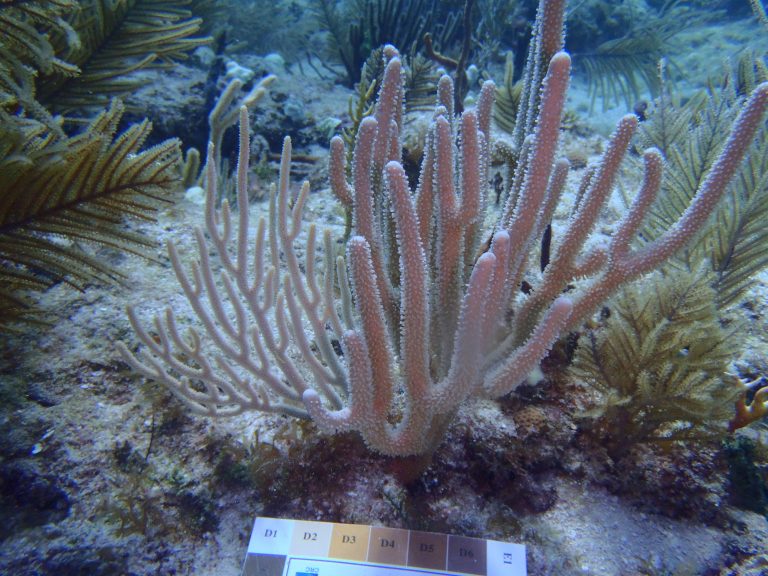Climate change has warmed ocean temperatures, increasing the risk and frequency of coral bleaching, a stress response in which corals expel the colorful algal symbionts that provide them with a photosynthetic food source. Experimental results recently published by CSUN biologists suggest that different symbiont strains may vary in their ability to resist bleaching, which could allow natural populations to adapt to warmer waters.
Working in the lab of Associate Professor Casey TerHorst, CSUN Biology Master’s students Shannon Bayliss (now a PhD student at the University of Tennessee Knoxville) and Zoë Scott (now a marine biologist for the City of San Diego) measured the growth and photosynthetic performance of different strains of algae isolated from coral reefs in the Florida Keys, under different stress and resource conditions. In one experiment they tested the algae under baseline or higher temperatures; in another, they provided the algae with varying levels of nitrogen fertilizer.
Both environmental conditions affected the algae’s growth and photosynthetic performance, but each strain responded differently. Where two of three tested strains grew more slowly under high temperature, the third grew more rapidly. All tested strains grew more rapidly with more added nitrogen, but some had lower photosynthetic efficiency in the high-nitrogen treatments. This genetic variation in performance may allow natural populations of the algae to adapt to warming waters and nitrogen pollution from agricultural runoff; but how performance in these experimental conditions translates into successful symbiosis in the wild remains to be seen.
The full study results are available open-access at the website of the journal Ecology & Evolution, where Bayliss, Scott, and TerHorst published with Mary Alice Coffroth, a collaborator at the University at Buffalo.
Image: Bleached coral, which has lost its algal symbionts. (Coffroth Lab)

